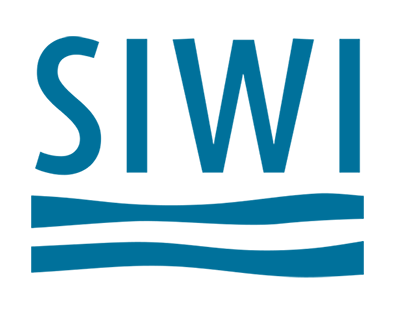Location
SIWI's vision is a water wise world, where we recognize the value of water, and ensure that it is shared and allocated sustainably, equitably and efficiently, to meet everyone’s basic needs.
Through applied research, policy consultation, capacity-building, and connecting key actors across sectors, SIWI stimulates the development of innovative policies and scientifically-based solutions to water-related challenges.
We bridge science, policy and practice for a water wise world.
Founded in 1991, the Stockholm International Water Institute (SIWI) provides and promotes water wise solutions for sustainable development in the areas of water governance, transboundary water management, and through international policy processes.
We also bring together experts, practitioners and decision-makers from a range of sectors and countries during our annual World Water Week to network, exchange ideas and foster new thinking around the most pressing water-related challenges of today. To help recognize outstanding water achievements and encourage interest in water and sustainability issues, SIWI also hosts the world’s most respected award for water achievement, the Stockholm Water Prize, as well as the Stockholm Junior Water Prize and the Stockholm Industry Water Award.
SIWI also hosts several flagship programmes, including the UNDP Water Governance Facility at SIWI,and since 2014, UNESCO Category II Centre, the International Centre for Water Cooperation (ICWC). Through the Swedish Water House, it connects Swedish water stakeholders from different sectors with each other and with international processes and discussions.
Today, SIWI employs over 70 staff with a wide-range of professional and cultural backgrounds (our staff speak over 20 languages), in two locations (a secondary office in Pretoria, South Africa). This supports us to address complex, cross-cutting challenges faced by clients and partners from government and business around the world.
Internationally active, politically neutral, and intellectually objective, SIWI welcomes opportunities for collaboration with partners across the world.
Members:
Resources
Displaying 1 - 5 of 8Safe wastewater reuse: a call for sanitation safety plans.
The publication of the third edition of the WHO Guidelines for Drinkingwater Quality (WHO, 2004) introduced the concept of integrated, preventive risk management through water safety plans (WSPs) as a means to put into operation the principles, standards, norms and best practice proposed by the Guidelines. The WHO suggests applying the same concept to support the implementation and operationalization of their Guidelines for the Safe Use of Wastewater, Excreta and Greywater in Agriculture and Aquaculture (WHO, 2006) which follow the same principles of HACCP and health-based targets.
Innovations in agricultural water management: new challenges require new solutions.
Innovations in managing the agriculture, energy and groundwater nexus: evidence from two states in India.
This study was conducted in two Indian states of Punjab (in the north) and Karnataka (in the south). An analysis of long term trends in groundwater development and agricultural growth in Karnataka shows two things. First, the growth in irrigation was largely contributed by expansion of groundwater irrigation. Second, with the groundwater development, the state experienced a quantum jump in electricity supply to agriculture. In 1981, electric tubewells were de-metered and a flat tariff regime was introduced. This led to rapid increase in tubewell connections.
Exploring ecosystem services contribution to social-ecological resilience in Ethiopian agricultural landscapes.
In this paper, concepts from Socio-Ecological Systems (SES) theory are applied to explore interactions among ecosystem services, livelihoods and resilience of SES. The approach was to i) examine trends in the stock of bundle of ecosystem services in three study landscapes namely Fogera, Jeldu and Diga within the Blue Nile Basin of Ethiopia, ii) describe the trajectories in livelihood strategies, poverty status and present evidence of success and failure in these SES, and iii) explore linkages between stocks of ecosystem services, livelihood conditions and resilience of the SES.


